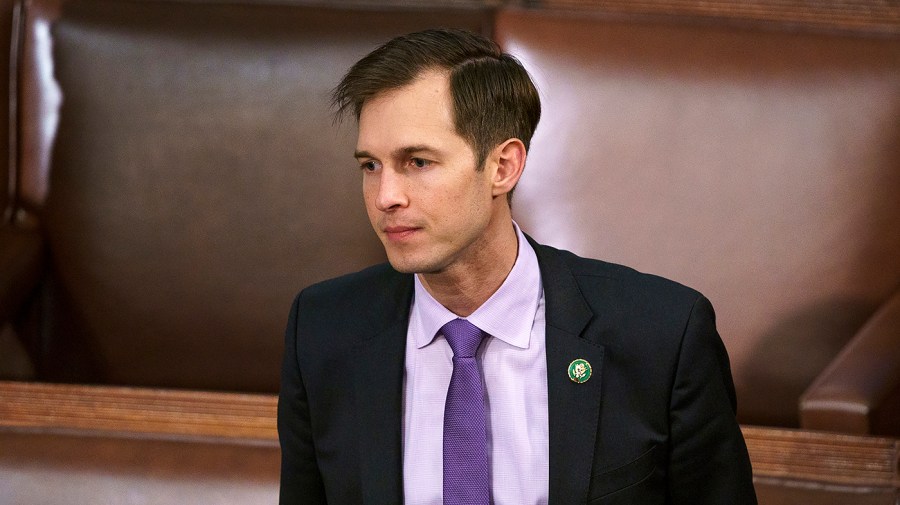

Four months into a church disciplinary process, the possibility of reinstatement looks remote for Selden “Dee” Kelley, the San Diego pastor who lost his job after writing 1,218 words that called for a broader dialogue on same-sex marriage in the Church of the Nazarene.
Kelley, who led San Diego First Church of the Nazarene for 17 years before his dismissal on Aug. 14, said last week that a regional church court denied his initial appeal on Nov. 20. Though he petitioned the Nazarene General Court of Appeals last week, the leader, a man practiced in helping others hold onto hope, says he does not have much in this case. Though a panel of six people from across the globe will review his 27-page plea for reversal of his dismissal, that outcome seems unlikely.
“I don’t anticipate that there will be a change,” Kelley said. “I think my best shot at receiving exoneration was at the last hearing board which was a group from the USA and Canada.
“But since this second appeal was an option, and it gave me an opportunity to talk about these issues at one more level of our church, I decided to try and make that happen.”
It’s an issue that is not restricted to this one particular church or this specific domination. Disagreements over same-sex ministry have roiled many communities of faith in recent years, from the Evangelical Lutheran Church of America to the United Church of Christ. Just last week, news broke that one quarter of congregations in the United Methodist Church are leaving the denomination “over disputes involving the church’s LGBTQ-related policies,” according to the Associated Press.
Kelley’s crime, according to the appeal documents he shared, is penning an essay entitled “A Hope For Change” in “Why the Church of the Nazarene Should Be Fully LGBTQ+ Affirming,” an anthology of 90 essays published on April 13.
In his piece, Kelley argues that it is high time for the church to have a grassroots-level conversation about same-sex marriage, which is currently forbidden by Nazarene policy.
“I’m not referring to select committees or an isolated task force,” Kelley wrote. “We need open dialogue among the rank and file, and we need the dialogue to be encouraged by leadership.”
But discipline, not dialogue, arrived quickly after publication, eventually forcing Kelley to surrender his pastoral credentials.
His latest appeal quotes from the church’s original charge that his essay “holds and teaches doctrine contrary to that of the Church of the Nazarene about human sexuality and marriage. He publicly advocates beliefs that are unorthodox and out of harmony with the Church of the Nazarene’s doctrine, teaching, beliefs and practices.”
Those charges do not accuse Kelley of actually performing same-sex marriages. The pastor said he has not done so, and has generally followed church doctrine.
“I have never had same-sex relations. I have never performed a same-sex marriage ceremony. I have not inveighed against the church. I have tried to abide in hearty fellowship with the church. I am committed to its doctrines and usages and actively involved in continuing witness and outreach,” Kelley wrote in his final appeal.
But the church accuses its pastor of teaching through his writings, an activity governed by its covenants of Christian conduct that all leaders must follow. And here is where things get quite technical. Kelley notes that prohibitions against same-sex marriage are among those covenants which are listed separately from church doctrine in the manual that governs all church actions. Covenants, he argues, come from church leaders, not the general assembly, made up of representatives elected by congregations, that sets doctrine.
“My contention is that the general superintendents don’t have the authority to declare doctrine,” he said. “Our manual says that only our general assembly can do that, and they have not done that.”
In the end, he said, his call for a dialogue is about the church’s willingness to discuss a sensitive topic; debate, he notes, is a long-standing Nazarene core principal. His dismissal, he argues, comes out of a desire to stifle debate.
“If both sides of the dialogue can’t be stated, then it is not a dialogue,” Kelley wrote in his appeal. “In the essay I state that ‘I disagree.’ I am not ‘calling’ for anything other than the privilege to disagree in a civil and charitable way. The prosecution’s case is that I, as an ordained elder, am not allowed to disagree with the Church I love and serve.”
The final appeal also makes several other points about the church discipline process failing to follow its own written procedures, including a requirement to engage in “informal reconciliation” before moving on to formal disciplinary hearings.
Gary W. Hartke, general secretary in the Global Ministry Center of the Church of the Nazarene, which is headquartered in Lenexa, Kan., and the individual to which Kelley’s final appeal is addressed, did not respond to an email request for comment sent Thursday. Tom Taylor, the Nazarene district director who Kelley and many at First Church say filed charges against him, said in an email Friday that he “cannot comment on an ongoing personnel issue.”
The First Church congregation sees Kelley’s reinstatement as a near impossibility, inviting him to a recent farewell service during which he was invited to say his goodbyes.
“The auditorium was packed, and they gave Dee Kelley a standing ovation,” said Dean Nelson, a church board member and director of the journalism program at Point Loma Nazarene University.
One of the largest and most financially generous Nazarene congregations in the region, the First Church has seen its ranks shrink since Kelley was forced to hand over his credentials and give way to an interim pastor, Nelson said.
“We’ve lost a number of people during this time, people who have thought, ‘well, if this is what the Church of the Nazarene views as proper behavior, then we don’t want anything to do with it,’” Nelson said.
The congregation is now searching for Kelley’s replacement, Nelson said, but still struggles to accept, let alone agree with, the ouster of a pastor who worked for so many years ministering to the community, presiding over so many marriages, funerals and baptisms.
“I think that that’s one of the things that’s troubling this congregation as well,” Nelson said. “The question is, what do we do with these feelings that say this was wrong, how Dee Kelley was treated, it was wrong.”
For his part, Kelley said he is not sure where life will take him next. Generations of Kelleys have been active in the Church of the Nazarene, and he said that he feels called to remain a member of the local congregation, though perhaps not of the larger church.
While he said that the outpouring of grief over his dismissal has been humbling, no one should think that his struggle has been the hardest. He is clearly uncomfortable with being painted as any sort of martyr.
“Please don’t confuse the difficulty that I’ve gone through with the pain and hurt that somebody who identifies with the queer community feels when a church they love and a faith they have committed to rejects who they are as a person,” Kelley said.






